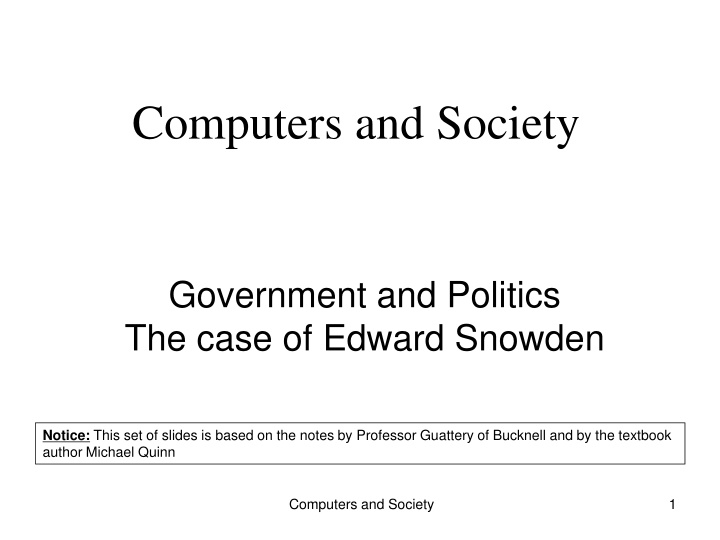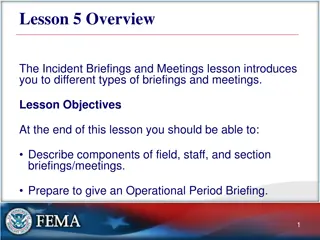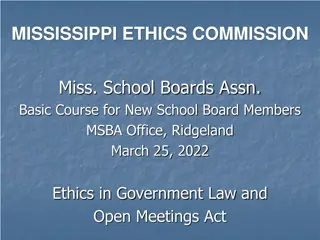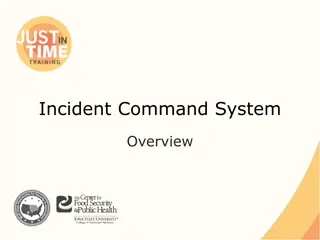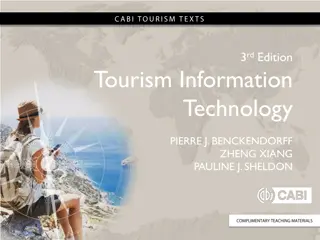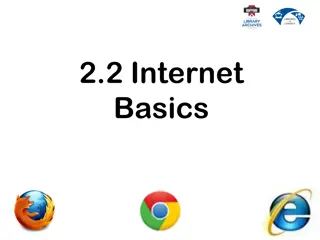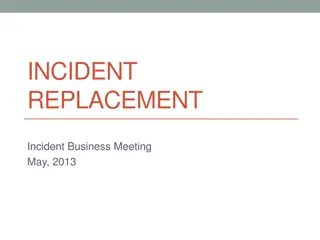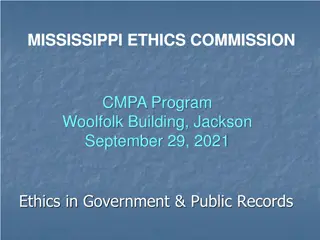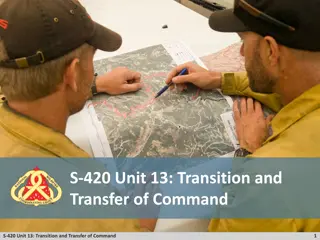The Edward Snowden Incident: Government, Politics, and Ethics in the Internet Age
Explore the Edward Snowden incident, where the former NSA employee leaked classified information revealing the U.S. government's surveillance activities. Delve into the ethical implications, the timeline of events, and the impact on government and society in the internet age.
Download Presentation

Please find below an Image/Link to download the presentation.
The content on the website is provided AS IS for your information and personal use only. It may not be sold, licensed, or shared on other websites without obtaining consent from the author.If you encounter any issues during the download, it is possible that the publisher has removed the file from their server.
You are allowed to download the files provided on this website for personal or commercial use, subject to the condition that they are used lawfully. All files are the property of their respective owners.
The content on the website is provided AS IS for your information and personal use only. It may not be sold, licensed, or shared on other websites without obtaining consent from the author.
E N D
Presentation Transcript
Computers and Society Government and Politics The case of Edward Snowden Notice: This set of slides is based on the notes by Professor Guattery of Bucknell and by the textbook author Michael Quinn Computers and Society 1
Politics at the Internet Age In this segment, we will examine the issues of government and politics in the internet age through two cases studies The Edward Snowden Incident The WikiLeak Incident Computers and Society 2
EDWARD SNOWDEN INCIDENT What happened? What are the issues? What are the lessons learned from ethical point of view? Computers and Society 3
What Happened? Edward Snowden, a formal NSA employee, reveals many U.S. government secrets, mainly about the government s role in collecting internet and telecommunication user information Phone usage records Web and internet use data And others Computers and Society 4
An interview with Snowden Edward Snowden: the whistleblower behind the NSA surveillance revelations An interview by Guardian reporters Glenn Greenwald, Ewen MacAskill and Laura Poitras in Hong Kong on June 9, 2013 http://www.theguardian.com/world/2013/jun/ 09/edward-snowden-nsa-whistleblower- surveillance Computers and Society 5
Timeline and Information Revealed (1) Major milestones based on Guardian 05/20/2013: Snowden arrives in Hong Kong from Hawaii with four laptop computers with some of the US government's most highly-classified secrets. 06/01/2013: Guardian journalists Glenn Greenwald and Ewen MacAskill and documentary maker Laura Poitras met Snowden in a Hong Kong hotel after he identifies himself with a Rubik's cube and begin a week of interviews with their source. Computers and Society 6
Timeline and Information Revealed (2) 06/05/2013: The Guardian publishes its first exclusive based on Snowden's leak, revealing a secret court order showing that the US government had forced the Verizon to hand over the phone records of millions of Americans. 06/06/2013: A second story reveals the existence of the previously undisclosed programme Prism, which internal NSA documents claim gives the agency "direct access" to data held by Google, Facebook, Apple and other US internet giants. The tech companies deny that they have set up "back door access" to their systems for the US government. Computers and Society 7
Timeline and Information Revealed (3) 06/08/2013: Another of Snowden's leaks reveals the existence of an internal NSA tool Boundless Informant that allows it to record and analyze where its data comes from, and raises questions about its repeated assurances to Congress that it cannot keep track of all the surveillance it performs on American communications. 06/09/2013: Snowden decides to go public. In a video interview he says: "I have no intention of hiding who I am because I know I have done nothing wrong." Computers and Society 8
Timeline and Information Revealed (4) 06/20/2013: Top secret documents published by the Guardian show how US judges have signed off on broad orders allowing the NSA to make use of information "inadvertently" collected from domestic US communications without a warrant. 06/23/2013: Snowden leaves Hong Kong on a flight to Moscow. WikiLeaks said it was assisting him, in part by providing adviser Sarah Harrison as an escort, and said he was heading to a democratic country, believed to be Ecuador, "via a safe route". 06/24/2013: Journalists board a flight from Moscow to Havana amid reports Snowden is about to board but he doesn't. Computers and Society 9
Timeline and Information Revealed (5) 07/03/2013: UN secretary general Ban Ki-moon says that Snowden misused his rights to digital access and created problems greater than the public benefit of disclosure. 07/05/2013: The Washington Post, despite having published stories based on Snowden's leaks, now writes that he should be prevented "from leaking information that harms efforts to fight terrorism and conduct legitimate intelligence operations". 07/20/2013: Destruction of Guardian computer equipment after threat of legal action by the UK government. Computers and Society 10
Timeline and Information Revealed (6) 07/31/2013: Russia gives Snowden a temporary asylum. http://www.nytimes.com/2013/08/02/world/europe/ed ward-snowden-russia.html 01/24/2014: Russia extends asylum to Snowden, as long as he wishes, he d stay in Russia http://www.cnn.com/2014/01/24/world/europe/russia- snowden/ Computers and Society 11
WHAT ARE THE ISSUES? We will look at what Snowden did, and what the U.S. government did based on the information revealed by Snowden. Computers and Society 12
What the U.S. government did 1. Verizon: NSA is collecting millions of phone records, on an ongoing, daily basis from Verizon, under a top secret court order, both within the US and between the US and other countries. 2. Internet/Web: The NSA has access to information from Google, Facebook, Apple and other US internet giants, under a previously undisclosed program called Prism, which allows officials to collect material including search history, the content of emails, file transfers and live chats Computers and Society 13
Phone record information Phone calls of millions US citizens are being collected indiscriminately and in bulk regardless of whether they are suspected of any wrongdoing. The secret Foreign Intelligence Surveillance Court granted the order to the FBI on April 25, 2013, giving the government unlimited authority to obtain the data for a specified three-month period ending on July 19. Information collected includes location data, call time and duration, unique identifiers of all calls. The contents of the conversation itself are not covered. Computers and Society 14
The Prism program The Guardian has verified the authenticity of the document, a 41-slide PowerPoint presentation classified as top secret with no distribution to foreign allies which was apparently used to train intelligence operatives on the capabilities of the program. The document claims "collection directly from the servers" of major US service providers. Computers and Society 15
Some images of the slide (1) http://www.theguardian.com/world/2013/jun/06/us-tech-giants-nsa-data Computers and Society 16
Some images of the slide (2) http://www.theguardian.com/world/2013/jun/06/us-tech-giants-nsa-data Computers and Society 17
Some images of the slide (3) http://www.theguardian.com/world/2013/jun/06/us-tech-giants-nsa-data Computers and Society 18
Some details of Prism The NSA access was enabled by changes to US surveillance law introduced under President Bush and renewed under Obama in December 2012. The program facilitates extensive, in-depth surveillance on live communications and stored information. The law allows for the targeting of any customers of participating firms who live outside the US, or those Americans whose communications include people outside the US. It also opens the possibility of communications made entirely within the US being collected without warrants. Computers and Society 19
Major companies whose data are collected Microsoft: 09/11/2007; Yahoo: 03/12/2008; Google: 01/14/2009 Facebook: 06/03/2009 PalTalk: 12/07/2009; YouTube: 09/24/2010; Skype: 02/06/2011; AOL: 03/31/2011; Apple: October 2012. Computers and Society 20
Type of information collected Email, video and voice chat, videos, photos, voice-over-IP (Skype, for example) chats, file transfers, social networking details, and more. Computers and Society 21
Ethics framework Kantianism: Act from moral rules, no matter what the consequences are, or treat yourself and others as an end, not a means to an end; Act utilitarianism: If the harm of doing it overweighs the benefit, don t do it; Rule utilitarianism: If all behave according to act utilitarianism, what would be the benefit (or harm)? If harm overweighs benefit, don t do it; Social contract theory: Act based on equal rights of everyone. Computers and Society 22
Examine the ethics (1) On the part of Snowden Is it ethical for Snowden to release those documents? Is it ethical for Snowden to take those documents with him when leaving NSA? Did he break his contract with the government? What are the benefits and harms of releasing the documents? Is the benefit of releasing these documents overweighing the harm? Computers and Society 23
Examine the ethics (2) On the part of government Is it ethical to collect information of ordinary internet users? Is it ethical to collect information of ordinary phone users? Where is the line (if any) between reasonable and excessive collection of information? Does culture play a role here (e.g., the British might accept more surveillance than the Americans)? For example, former British GCHQ (Government Communications Headquarter) chief David Omand thinks it is completely ethical for what the NSA does. Computers and Society 24
References (1) Gidda, M. (2013, July 25). Edward Snowden and the NSA files timeline. The Guardian. Retrieved from: http://www.theguardian.com/world/2013/jun/23/edward-snowden-nsa-files- timeline Labortt, E. and Castillo, M. (2014, January 24). Edward Snowden won't be pressured to end asylum, Russia says. CNN. Retrieved from: http://www.cnn.com/2014/01/24/world/europe/russia-snowden/ Greenwald, G. (2013, June 5). NSA collecting phone records of millions of Verizon customers daily. The Guardian. Retrieved from: http://www.theguardian.com/world/2013/jun/06/nsa-phone-records-verizon- court-order Greenwald, G. and MacAskill, E. (2013, June 6). NSA Prism program taps in to user data of Apple, Google and others. The Guardian. Retrieved from: http://www.theguardian.com/world/2013/jun/06/us-tech-giants-nsa-data The articles by Greenwald (06/05/2013) and Greenwald & MacAskill (06/06/2013) are the very first two articles by The Guardian that report on Snowden. Computers and Society 25
References (2) Greenwald, G., Poitras, L., and MacAskill, E. (2013, June 6). Edward Snowden: the whistleblower behind the NSA surveillance revelations. The Guardian. Retrieved from: http://www.theguardian.com/world/2013/jun/09/edward-snowden-nsa- whistleblower-surveillance Omand, D. (2013, June 11). NSA leaks: how to make surveillance both ethical and effective. The Guardian. Retrieved from: http://www.theguardian.com/commentisfree/2013/jun/11/make-surveillance- ethical-and-effective O Neil, B. (2013, July 8). The Ethics of Whistleblowing. Mises Daily. Retrieved from: http://mises.org/daily/6474/ O Neil, B. (2013, July 9). The Ethics of State Secrecy. Mises Daily. Retrieved from: http://mises.org/daily/6475/The-Ethics-of-State-Secrecy Computers and Society 26
